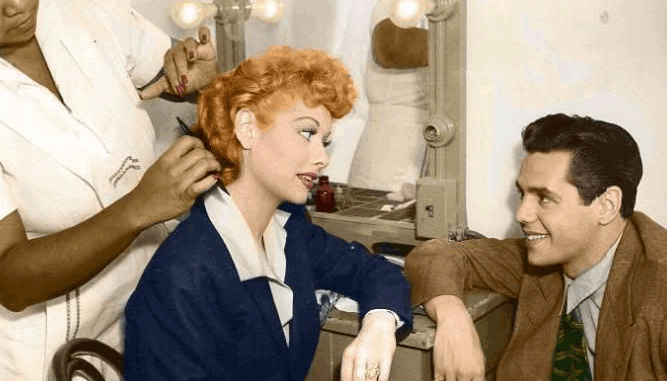
When Lucille Ball became pregnant in real life during the filming of I Love Lucy Season 2, CBS executives panicked. At the time, the word “pregnant” was considered too risqué for primetime TV. Writers were told: don’t say it, don’t show it, don’t even imply it.
But Lucille Ball and Desi Arnaz weren’t backing down.
In a groundbreaking storyline, the show incorporated Lucy’s pregnancy into the script — making her the first visibly pregnant character on American television. The network refused to use the word “pregnant,” opting for “expecting” instead, but the message was clear: TV had changed forever.
The 1953 episode “Lucy Is Enceinte” (using the French word for pregnant) stunned viewers. The emotional moment when Lucy reveals the news to Ricky during a nightclub performance brought audiences to tears — and ratings through the roof.
Nearly 44 million people tuned in to watch “Lucy Goes to the Hospital”, the episode where Little Ricky is born — beating the U.S. President’s inauguration in viewership.
The cultural impact was immediate. Suddenly, pregnancy wasn’t taboo — it was must-see TV. Lucy and Desi’s fight to tell their story opened doors for future sitcoms and redefined what television could show.
Season 2 wasn’t just hilarious — it was revolutionary. And Lucille Ball became not only a comedy legend but a television trailblazer.
